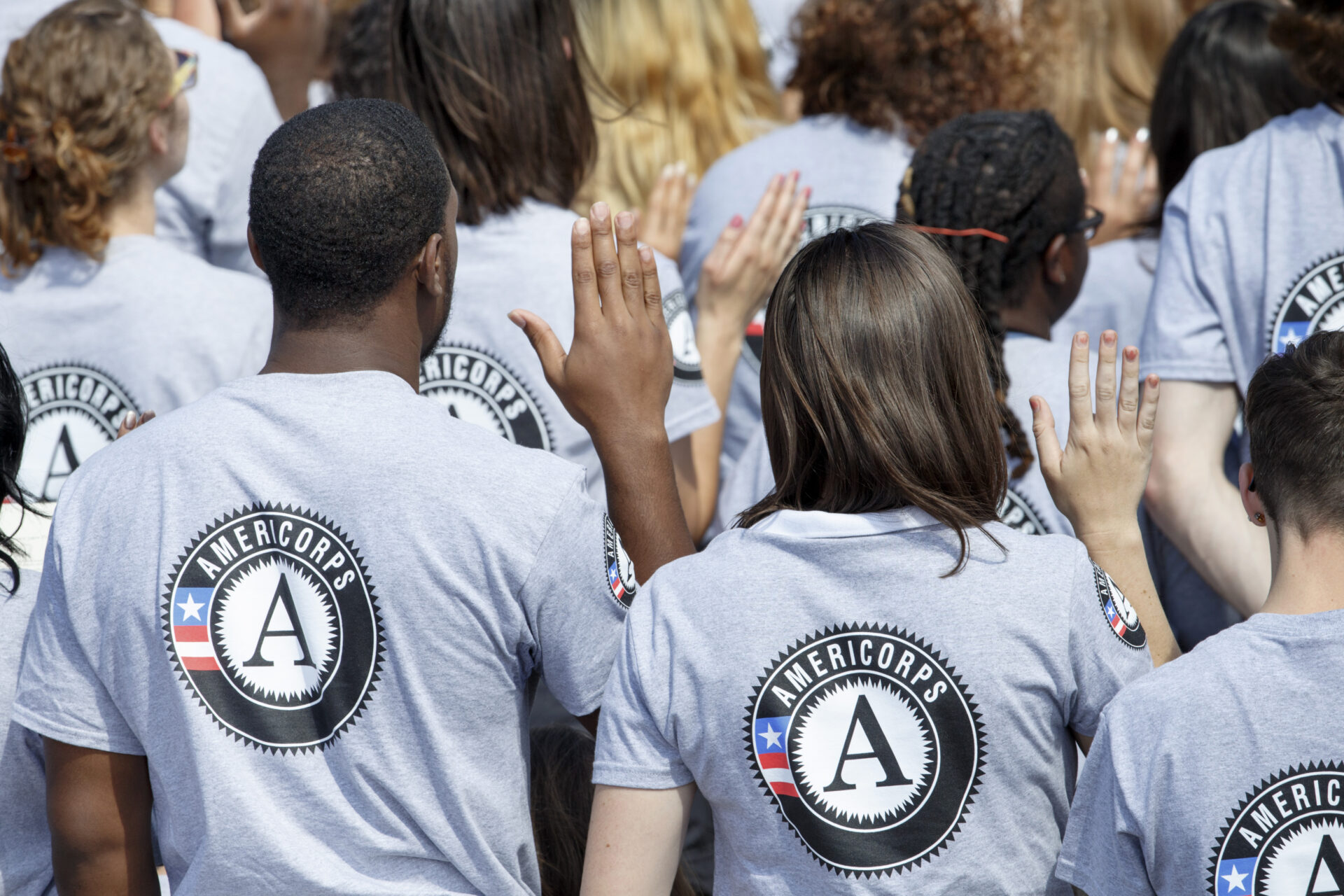Each year, AmeriCorps pays young workers across the country to partake in service projects — in West Virginia, ranging from community farming programs to housing support to after-school services.
Last year, the program connected nearly 3,000 service members with opportunities in the state. But organizers across the region say funding cuts to the federal agency place these programs at risk.
In April, the Trump administration placed the vast majority of federal AmeriCorps administrators on leave, and canceled roughly $400 million in grant funding to state and national partners through the Department of Government Efficiency (DOGE). Twenty-five states have sued the presidential administration for what they call illegal gutting of the agency.
Outreach leaders for community service groups across Appalachia gathered for a virtual forum Thursday to discuss the funding cut’s impact, and to highlight their efforts to appeal Congress for a funding restoration.
Representatives from the Appalachian Citizens Law Center, Appalachian Voices, ReImagine Appalachia, West Virginia Rivers and the Town of Pound, Va. said the program cuts would devastate their outreach efforts, and cause them to fall short on addressing ongoing local needs.
On April 28, these groups sent a letter to ranking members of the appropriations committees of the United States Senate and the United States House of Representatives.
The letter identifies particular areas where organizers say funding must be protected, namely flood resiliency, workforce development and protection, family services, energy infrastructure, coal mine safety and economic development.
“Our work is bipartisan. Every day Appalachian communities work across political differences to find common ground; rebuild our economies; update dangerous, outdated infrastructure and create a stronger foundation for the future,” the letter reads. “These investments should be protected from cuts and freezes, and the agencies implementing these programs must be properly funded and staffed.”
During the virtual forum, Dana Kuhnline, program director for ReImagine Appalachia, said the cuts hit economically disadvantaged regions like Appalachia particularly hard. Her organization focuses on areas like workforce development and clean energy.
“It’s particularly ironic and frustrating that it’s coming from a lot of folks on the federal level who would say that they’re doing it for the coal industry, when you have all these communities that are getting hit now doubly by the downturn of the coal industry and these sort of erratic and illegal funding cancellations,” Kuhnline said.
Kevin Zedack serves as government affairs specialist for Appalachian Voices, a group that focuses on things like clean energy, environmental protection and workforce development in central Appalachia.
On a broad level, Zedack said the congressional response in Appalachia to funding cuts for community service programs like AmeriCorps has been growing.
“Depending on the program, we have heard from members of Congress that there is concern about restoring some of these programs,” he said.
Zedack noted that Sen. Shelley Moore Capito, R-W.Va., and Rep. Riley Moore, R-W.Va., have called for a restoration of jobs at the National Institute for Occupational Safety and Health (NIOSH), which researches things like black lung disease in miners. The agency falls outside the scope of AmeriCorps, but Zedack emphasized that NIOSH provides crucial support to the region.
“There are folks who are willing to have those conversations,” Zedack said. “I think as we see the large impacts of some of these decisions more members of Congress will come forward and start advocating for those as we enter the appropriations process.”
